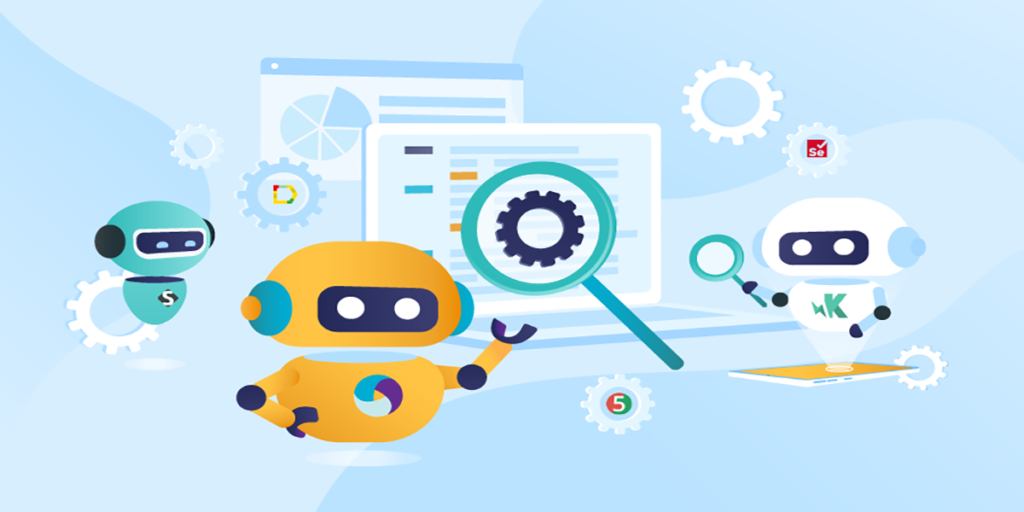Table of Contents
How to achieve more results? How to improve the business processes in my company? We bet you ask yourself these questions. And the answer exists.
In the modern world, when everything moves so fast, the automatization of business processes is a must. Multitasking, huge flow of information and race for the best result take us to the place where we realize the need of implementing systematization of business.
Modern technologies offer such solutions as CRM, ECM, and ERP systems that help to resolve this problem. In this article, we will make it plain to understand the meaning and the purposes of these systems.
What is CRM?
CRM (Customer relationship management) – is a software for organizations designed to achieve such goals:
- Increase profits: control the client’s flow and keep them loyal to your brand.
- Brand promotion: optimize marketing and analyze results.
- Automate teamwork: create and improve business processes. Improve customer service by storing customer information and the history of relationships with them.
All businesses now put great money into the acquisition and retention of each and every client. An average lead costs about $300-500 depending on the industry. If you don’t control the flow of incoming calls and requests from the website, email, etc, some of them may be lost. That means you will waste all the money and efforts spent on their acquisition.
But what if we tell you that the CRM system can organize all the workflow for you and bring income?
Benefits of CRM systems
- Control the work of employees.
- Create procedure standards.
- Record all the incoming calls, emails, and other contacts.
- Create one database of all leads (clients).
- Get the statistics and analytics to the efficiency of work with leads.
When you decide to start using the CRM, it’s very important to choose the one that suits your company best. It must contain all the needed functions and features and very important – to be comprehensive to staff. The main reason why CRM can fail – is because managers don’t want to change the method of work they are used to since they are too confused about the new system.
TIP: dedicate a day to present the new CRM and teach every person how to use it. Make such a masterclass for every newcomer.
How do CRMs differ?
- SaaS (software as a service) – in this case, all the system and data will be located on the server of a service provider. You get online access to the system through the browser, desktop program, or mobile application. All processes occur on the side of the service provider.
- The standalone – solution is installed on your own server and can be modified to your needs, depending on the capabilities provided by the CRM system provider.
SaaS can be a perfect solution for small businesses because you don’t need to spend extra time and money hiring a developer and admin to look after the CRM. But in this case, you don’t have the freedom to customize the system as you wish and get only suggested features.
On the other hand, when you have a bigger business, you should think of developing your own fully customized CRM. Obtain the possibility to get the functions that exactly meet your business goals.
CRM Pros & Cons
Pros of CRM implementing
Cons of CRM implementing
What is the meaning of ECM and how to use it?
ECM (Enterprise Content Management) — automated multi-user systems to manage digital documents and other types of corporate content to store and share documents within the organization. ECM includes many functions: the storage of documents, records, knowledge base, audit logs, events, works, etc., their management. 
Benefits of ECM systems:
- Transparency of business processes. Allows the management team to control all the activity of the company.
- Increase of the performance discipline. Using ECM, employees can track the status of every document or task.
- Insurance of information confidentiality. Allows assigning permissions (read, edit, sign, etc.) in order to avoid information leakage.
ECM Pros & Cons
Pros:
- Good OCR system with a high level of accuracy
- Worldwide support from OpenText.
- Large knowledge-base and documentation for troubleshooting
- Good integration with an external system through supported APIs
Cons:
- The interface is not user-friendly and difficult to use for non-technical users
- The report generation is also not an easy task and a database administrator needs to write the necessary queries to get the reports.
- The installation and configuration steps need to be done by specialists from OpenText due to the difficulty of the process.
- EMC is expensive in integration and maintenance as some products require dependent products for the work of the system
Why you Need an ECM System Development?
You don’t need to waste time for the bureaucracy like signing the document via several members. ECM also helps to track which stage the needed document or task is on. Generally, this system is demanded in big companies with large stuff and document flow.
Due to the growing need for data management by enterprises, ECMs tend to become required software for businesses.
But remember that ECM can not only bring order to the workflow but also chaos if you choose the system that does not suit your business.
What is an ERP system and how it works?
ERP or Enterprise Resource Planning unites all company departments in the system and gives access to data for all employees. This system helps to accomplish all daily tasks on time without any difficulties with the search for the required information. Of course, here comes the need for different levels of access. It is important to connect those departments that work directly with each other on a daily basis.
So, ERP is a software solution that manages the company’s data, providing its optimization and accessibility for the departments of the enterprise. Implementing ERP has many benefits for your enterprise as it makes the workflow more efficient. So ERP optimizes the following work processes:
- API access
- employee info and updates
- HR
- payment gateways
- receipts
- project management
- expense management
- asset management
Benefits and missions of ERP:
ERP is implemented for the purpose of making the workflow of your company more efficient and productive. It automates the work processes and reduces the need for human or paperwork. The main benefits of ERP implementation are the following:
- It makes the work processes more efficient and improved
- It provides clear forecasts for the sales department
- ERP helps to unite all company department in one community
- ERP system can grow and expand its borders as your company widens
- Integrated information available
- It helps to reduce unnecessary costs for human resource and other additional systems
- ERP provides a fully customized report generating
With ERP you can easily access the necessary information, and the combined system helps to reduce the number of working personnel and simplify accounting processes.
The lack of a clear and reliable system of internal planning and control, integrated with the external Internet solution, dooms the company to failure. The main goal of ERP is to reduce the possibility of human mistakes.
Custom business management tool
Taking everything into account, CRM, EMC, and ERP are implemented for the purpose of optimizing your business, make the work processes more productive and efficient, and bring more profit to your company. However, ready-made solutions are often not enough to cover the whole workflow accurately. We recommend you to think of developing a custom software solution that will meet all your business demands and automate work processes as you want. A custom system is created exactly to your requirements and you can be sure that the integration will be accurate, fast, and easy.
Custom BI system development is a great investment in the future of your company. As you pay once for the development and use the system for your needs. Our Business Analyst and the team of developers have vast experience in developing business management tools successfully and know how to define your business goals and reach them as soon as possible.
I would like to attract your attention to one of our cases. We were asked to develop and integrate a custom ERP software to automate some company processes and make them more productive.
Soljets – ERP for aircraft selling company

Our team of developers built an innovative website for an aircraft selling company. The company faced a poor initial version of the website as it wasn’t efficient and didn’t perform all the functions it had to do. Our customer needed to integrate their website with a custom ERP that had a wide range of options to make the company`s workflow more productive and profitable. Among the critical options were:
- filtered search for a required model of an aircraft where customers can type manufacturer, size, model, etc
- comparison of the chosen models to other similar variants on the website
- finding out the average price of the aircraft and check it on the map
We successfully released and implemented our development with customer business. Along with automated and simple orders process, customers also can find detailed descriptions of each model of airplanes about price, interior, performance, and other features. So they don’t have to wait for the response from administrators and can make a decision if they are ready to buy the aircraft or not much faster.
FAQ
Conclusion
Organized work with personnel and clients, increased workflow efficiency, increased profits… These are the desired results of all businessmen. No wonder that so many companies want to automate their business as soon as possible. But it may be not that easy to do it right.
The ready-made systems often include many functions that are not needed for your company (so you overpay) and only mess the mind of users (employees). Or vice versa they may lack some important features. Imagine the business tool designed to solve the problem of YOUR business, automate processes of YOUR business… Such a tool exists and can be yours! We consider the development of your personal business management tools to be the best solution.
Here are the reasons why:
- Customized specifically to your business needs.
- Easy to use.
- You pay only for the features you need.
- Possibility to add more and more functions.
- Pay once for the development (not monthly like in ready-made tools) and use without any limits.



